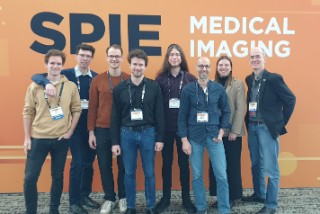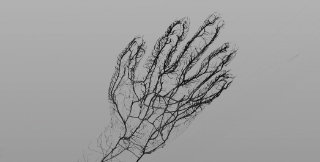
Artificial intelligence and computer-aided support for diagnosis and therapy in digital medicine—these are the topics Fraunhofer MEVIS is presenting at the International Society for Optics and Photonics (SPIE) Medical Imaging conference, which is held in San Diego, California, from February 18 to 22. This year, the Fraunhofer Institute for Digital Medicine MEVIS is again well represented at the renowned conference with numerous scientific and educational contributions.
more info Fraunhofer Institute for Digital Medicine MEVIS
Fraunhofer Institute for Digital Medicine MEVIS







